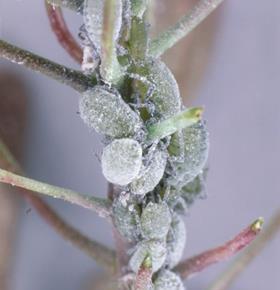
Brassica growers in Lincolnshire and East Anglia have faced the “worst infestation of aphids in living memory” leading to the recent unseasonal shortages in broccoli and cauliflower.
One leading vegetable supplier told FPJ that some of its growers have recorded aphid numbers that are 10 times higher than they usually see at this time of year.
The source said that as well as causing a problem though the infestation itself, aphids are a vector, or carrier, for disease, leading to further issues with crops.
“Growers are calling it the ‘worst infestation in living memory’,” the source said. “It has been a perfect storm of weather conditions for aphid reproduction, after a mild winter, cold spring, cool summer evenings and not much sunlight.”
Root crops have also been affected by the outbreak, and the source said organic carrots in particular have been impacted as growers are unable to use chemical prevention.
Mark Taylor, a research entomologist at Rothamsted Insect Survey, said the organisation had recorded “particularly high” numbers of aphids in early summer but this has now dropped.
“This year we have seen particularly high numbers of several aphid species including two brassica-feeding species, the peach-potato aphid right across England, excluding Scotland, and the cabbage aphid across the Midlands and eastern England,” he said.
“The total aphid numbers in question are certainly the highest in recent years but are not record makers for our monitoring system and are in fact quite patchy in nature.”
Taylor said numbers were high throughout June and most of July but stressed that they are now low. “Numbers have dropped right off in our samples over the last three weeks or so,' he said. 'The crash in numbers has been helped by large numbers of natural enemies such as ladybirds, hoverflies and parasitoids.”
Rothamsted Research, which monitors aphid flight activity year-round across the UK, said it had expected an “average aphid year” after the mild winter.
But Taylor said that another potential added factor may have been the ban on neonicotinoid seed dressings in winter oilseed rape in September 2014, which “may” have led to an extra reservoir of both brassica aphid species.
“Aphids are renowned for the rapid reproduction rates and if conditions were favourable this may have tipped the balance,” he added.



